Tips for Choosing a Montessori School for your Child
 So, you’ve decided to enroll your child in a Montessori program. First of all: great choice! However, the decision-making process isn’t over quite yet. You’ve still got to choose which Montessori school is right for your child. It is an unfortunate fact that any school or program can claim to be “Montessori.” Some are exemplary programs and others…not so much. So, it is up to us parents to make sure we’re getting the real thing. This can be especially difficult if you are a newcomer to the world of Montessori. So, what should a parent look for in a good Montessori school? Good question.
So, you’ve decided to enroll your child in a Montessori program. First of all: great choice! However, the decision-making process isn’t over quite yet. You’ve still got to choose which Montessori school is right for your child. It is an unfortunate fact that any school or program can claim to be “Montessori.” Some are exemplary programs and others…not so much. So, it is up to us parents to make sure we’re getting the real thing. This can be especially difficult if you are a newcomer to the world of Montessori. So, what should a parent look for in a good Montessori school? Good question.
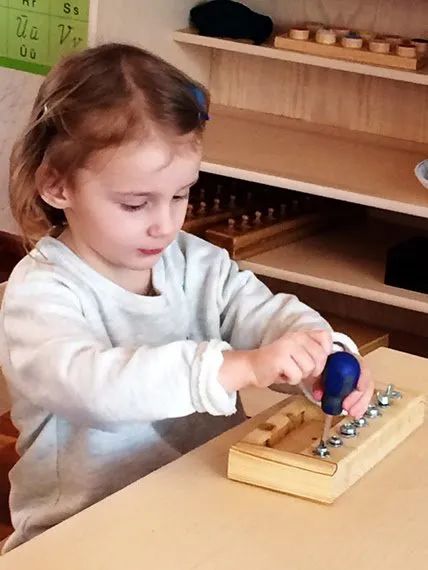
The number one thing I would recommend to anyone looking to choose the best Montessori program for their child is to go and observe the classroom. It’s hard to get an accurate idea of a school from a tour around the building, or a chat with administrators. You must spend a little time (I’d say at least 20 minutes) just sitting quietly, watching a room full of children. Here are a few things to be  mindful of as you observe.
mindful of as you observe.
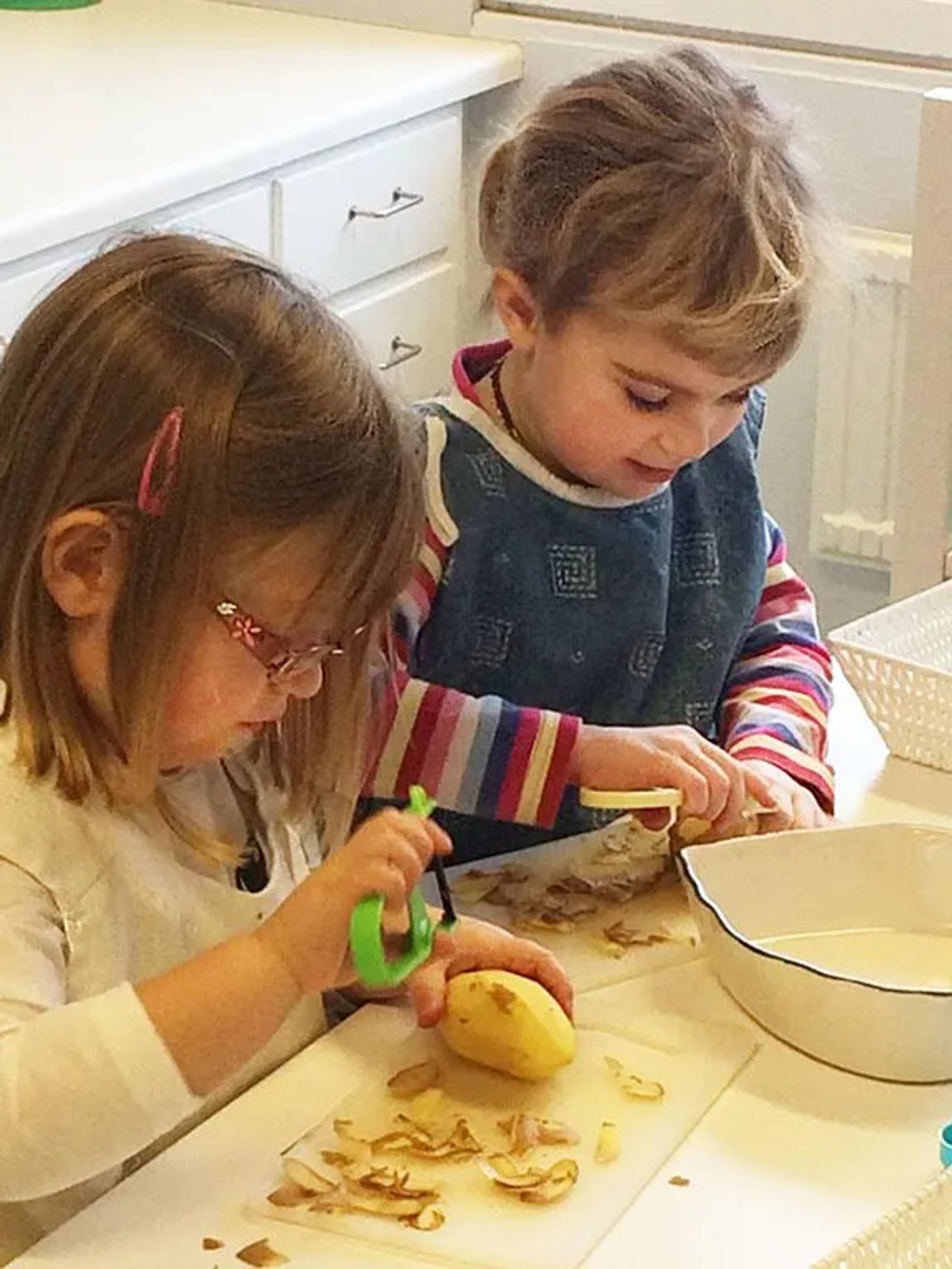
OBSERVE THE CLASSROOM
- Observe the room itself--
- Does the classroom look clean, organized, and well stocked with Montessori materials? (For an introduction to Montessori materials, please click here.)
- Montessori classrooms should be aesthetically pleasing. As Montessori herself explained, "….the tiny child’s absorbent mind finds all its nutriment in its surroundings. Here it has to locate itself, and build itself up from what it takes in. Especially at the beginning of life must we, therefore, make the environment as interesting and attractive as we can.”
- There should be child-sized
 furnishings, shelves, and tools. This is essential to fostering independence
furnishings, shelves, and tools. This is essential to fostering independence
and learning. - Are the Montessori materials made of natural elements such as wood, glass, or metal? Are they clean, organized, and easily accessible to the children?
- Does the room feel welcoming and comfortable?
- Is the atmosphere one of enjoyment?
- Does the classroom look clean, organized, and well stocked with Montessori materials? (For an introduction to Montessori materials, please click here.)
- Montessori classrooms should be aesthetically pleasing. As Montessori herself explained, "….the tiny child’s absorbent mind finds all its nutriment in its surroundings. Here it has to locate itself, and build itself up from what it takes in. Especially at the beginning of life must we, therefore, make the environment as interesting and attractive as we can.”
- There should be child-sized
 furnishings, shelves, and tools. This is essential to fostering independence
furnishings, shelves, and tools. This is essential to fostering independence
and learning. - Are the Montessori materials made of natural elements such as wood, glass, or metal? Are they clean, organized, and easily accessible to the children?
- Does the room feel welcoming and comfortable?
- Is the atmosphere one of enjoyment?
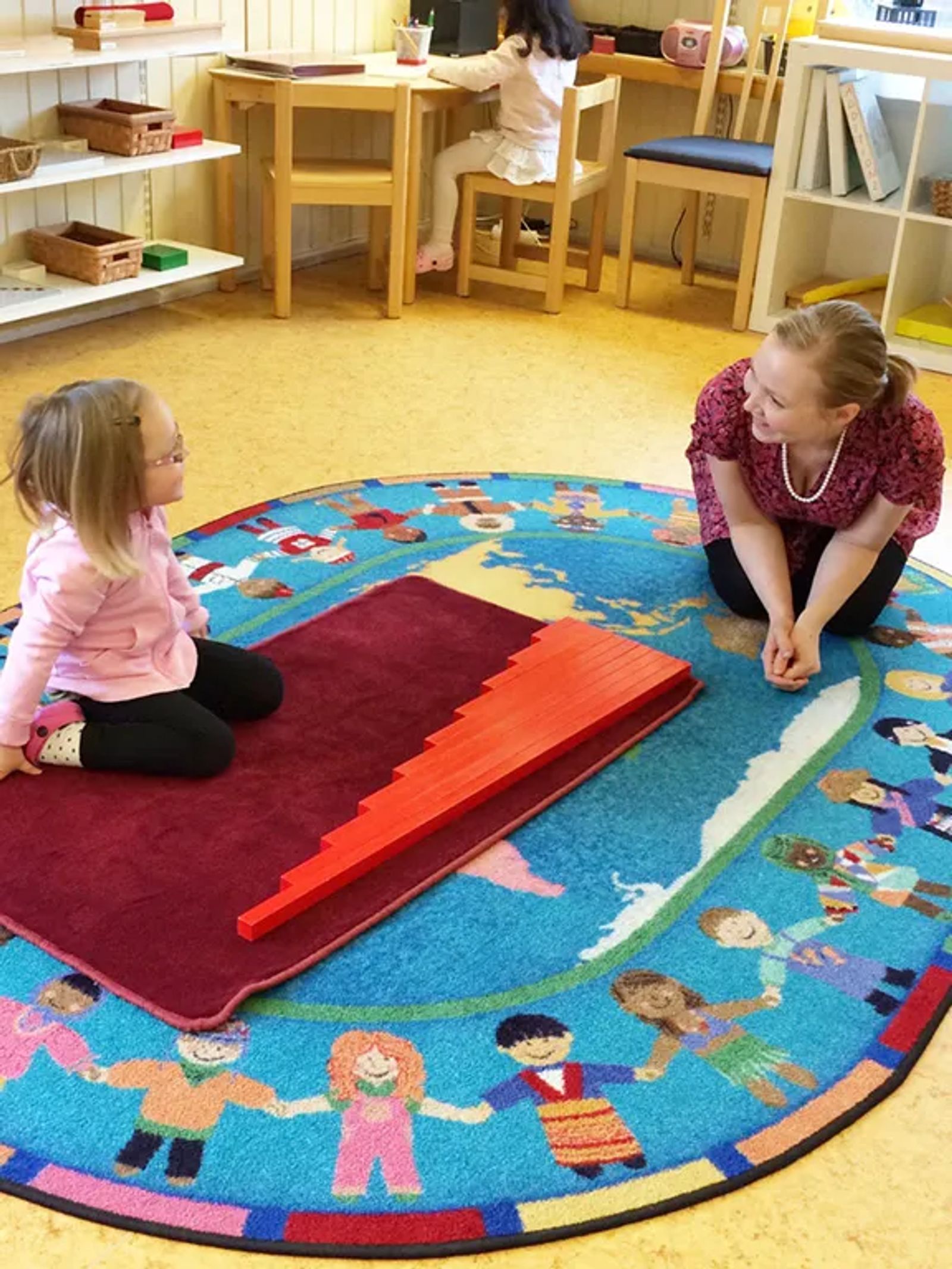
- Observe the children--
- Do the children look contented to be there?
- Are the children “working” productively (i.e. focused on a task) or are they disruptive and restless?
- Are the children working either independently or in small groups
 (usually 2-4 children)?
(usually 2-4 children)? - Is there an age range of children (usually 2½ to 6, 6 to 9, 9 to 12, and 15 to 18 years old)?
- Are the children able to choose their own work, and concentrate without being interrupted?
- Do the children interact with one another and adults respectfully?
- Do the children look contented to be there?
- Are the children “working” productively (i.e. focused on a task) or are they disruptive and restless?
- Are the children working either independently or in small groups
 (usually 2-4 children)?
(usually 2-4 children)? - Is there an age range of children (usually 2½ to 6, 6 to 9, 9 to 12, and 15 to 18 years old)?
- Are the children able to choose their own work, and concentrate without being interrupted?
- Do the children interact with one another and adults respectfully?
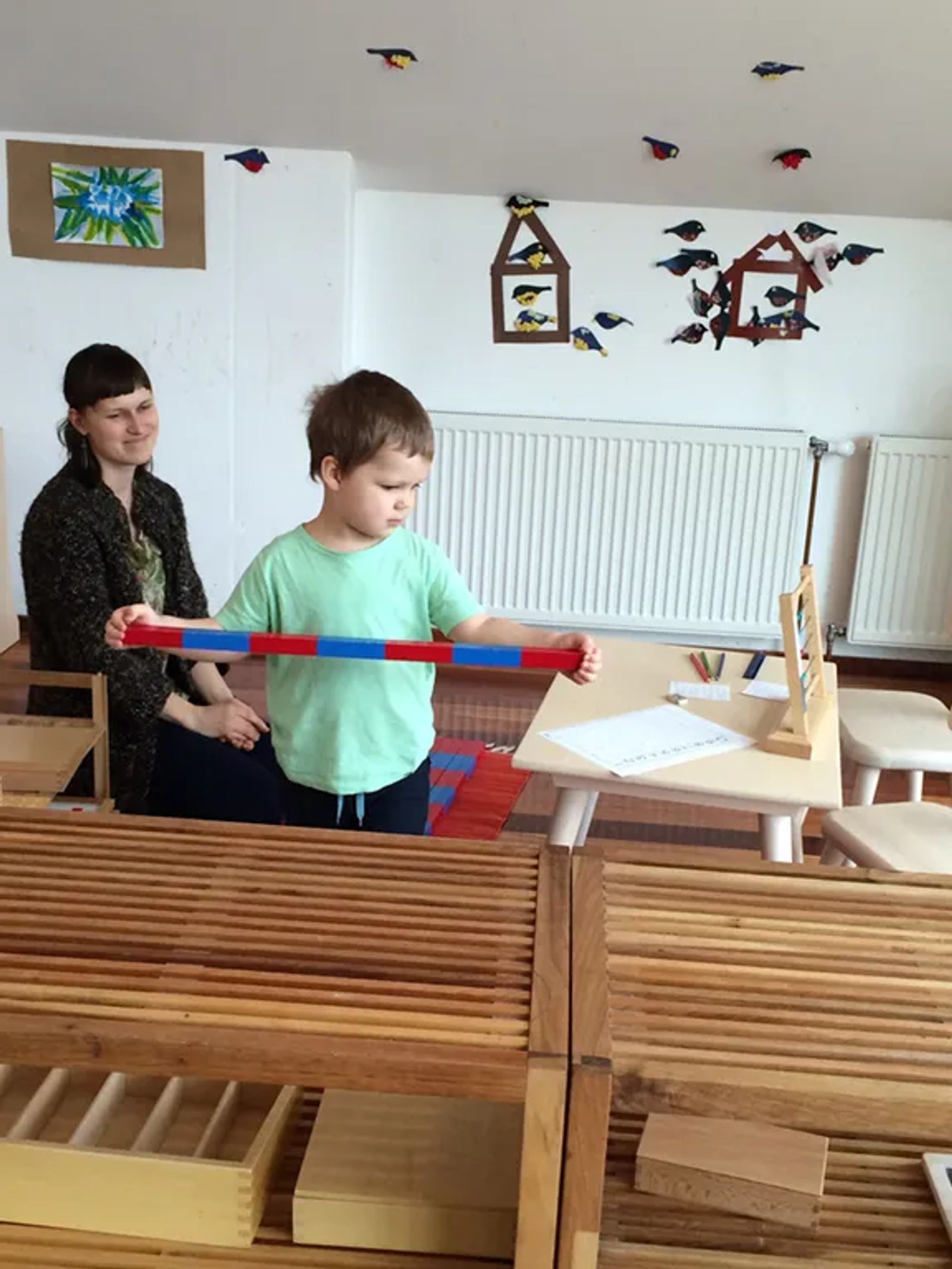
- Observe the teacher (note that in Montessori classrooms, teachers are often referred to as “guides.”) --
- How does the teacher interact with the children?
- Is there a respectful tone between teacher and children?
- Does the teacher guide the children as they work individually (as opposed to giving lessons to the class as a whole)?

- Do the teachers observe the children carefully so that they know where each child is in his/her individual development?
- How does the teacher interact with the children?
- Is there a respectful tone between teacher and children?
- Does the teacher guide the children as they work individually (as opposed to giving lessons to the class as a whole)?

- Do the teachers observe the children carefully so that they know where each child is in his/her individual development?
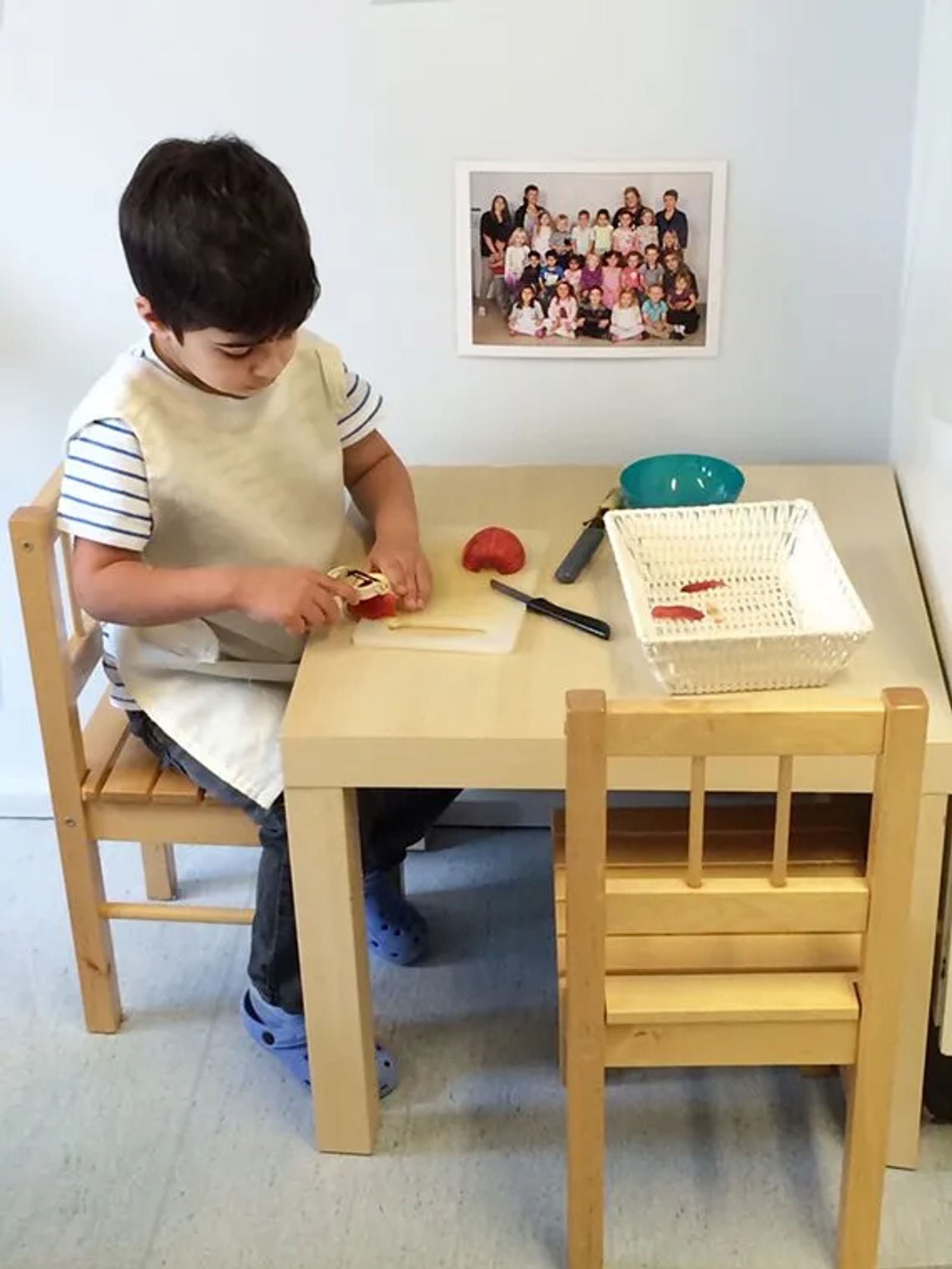
ASK, ASK, ASK!
In addition to observing the classroom, it is important to ask some key questions about the school. Such as:
- What is the classroom schedule like?
- Is there a long (about 3 hours) period of uninterrupted, unscheduled work time?
- Does the school focus on helping each child develop to his or her best ability (as opposed to grades)?
- Do the children have homework?
- Does the school participate in standardized testing?

- Is the staff friendly, knowledgeable, and approachable?
- What is the school’s history?
- What are the teachers’ credentials? Granted, Montessori teacher certification is a much-debated topic. For more information on this subject, please click
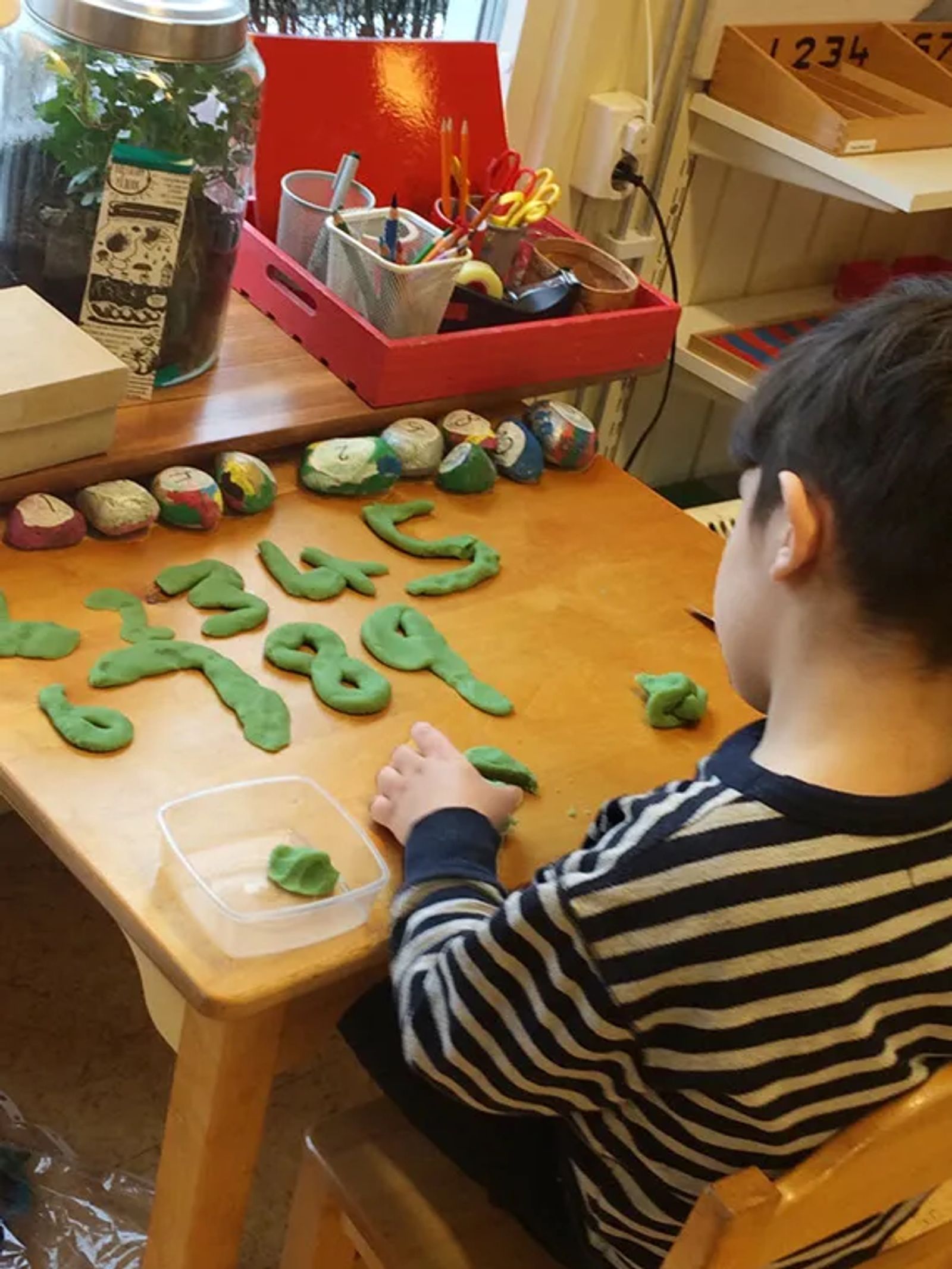
Finally--and perhaps most important of all--trust your own instincts. Do you feel comfortable with the environment and teachers? Does the classroom feel too structured, not structured enough? How does your child respond? You know your child better that anyone else, so trust in your inner guide and your ability to make the very best decisions for your child(ren.)




















